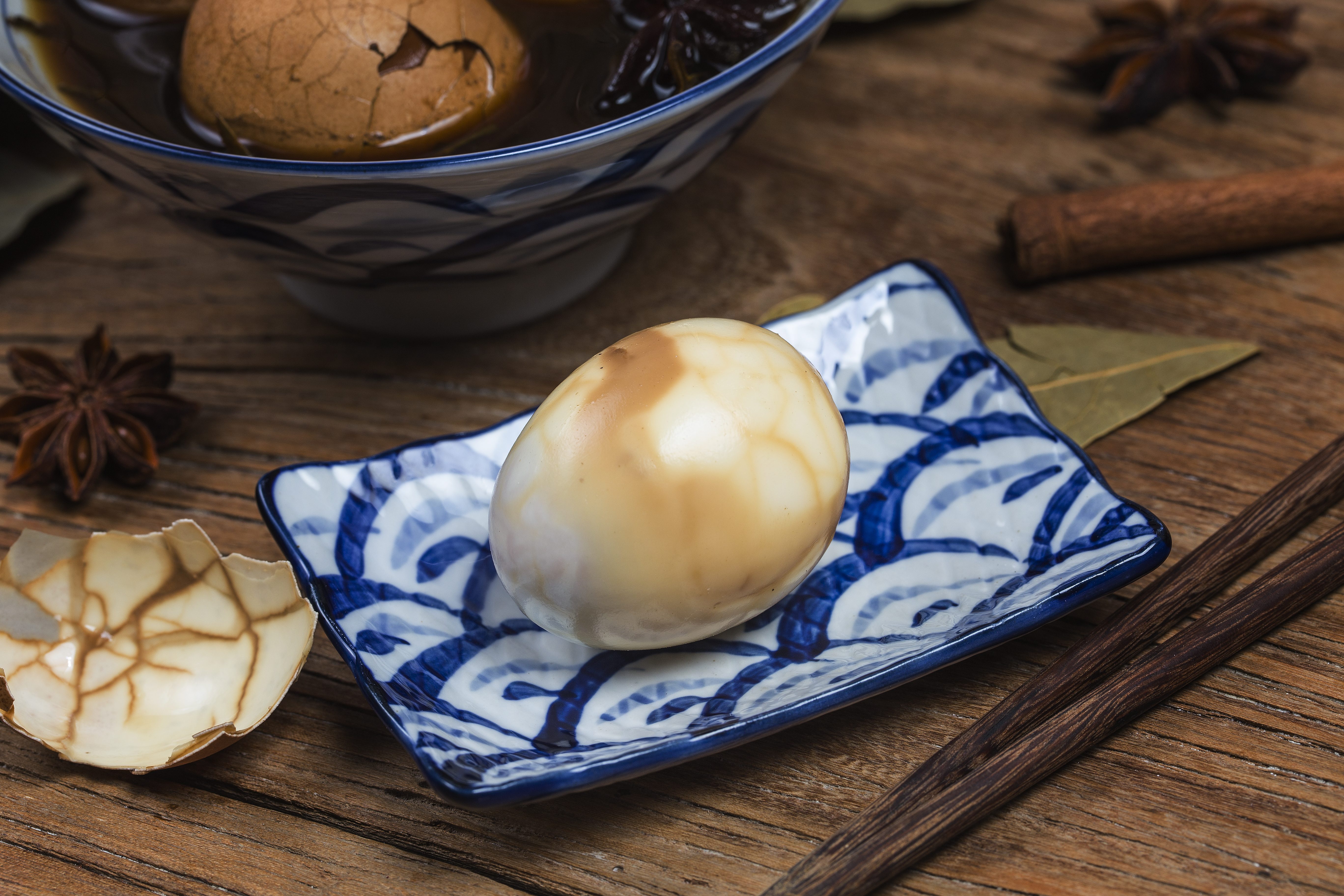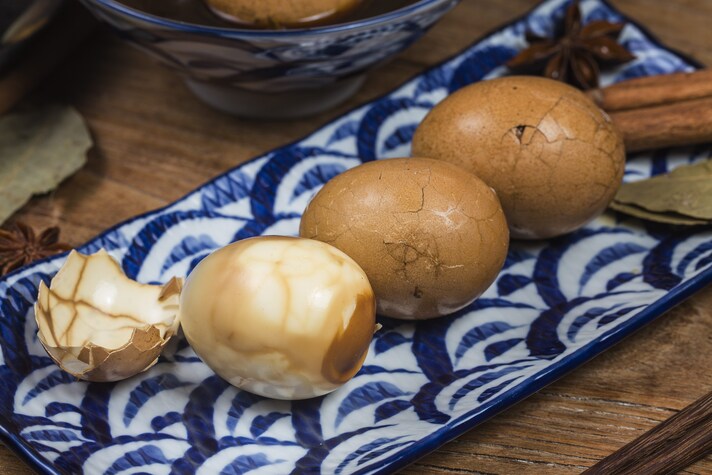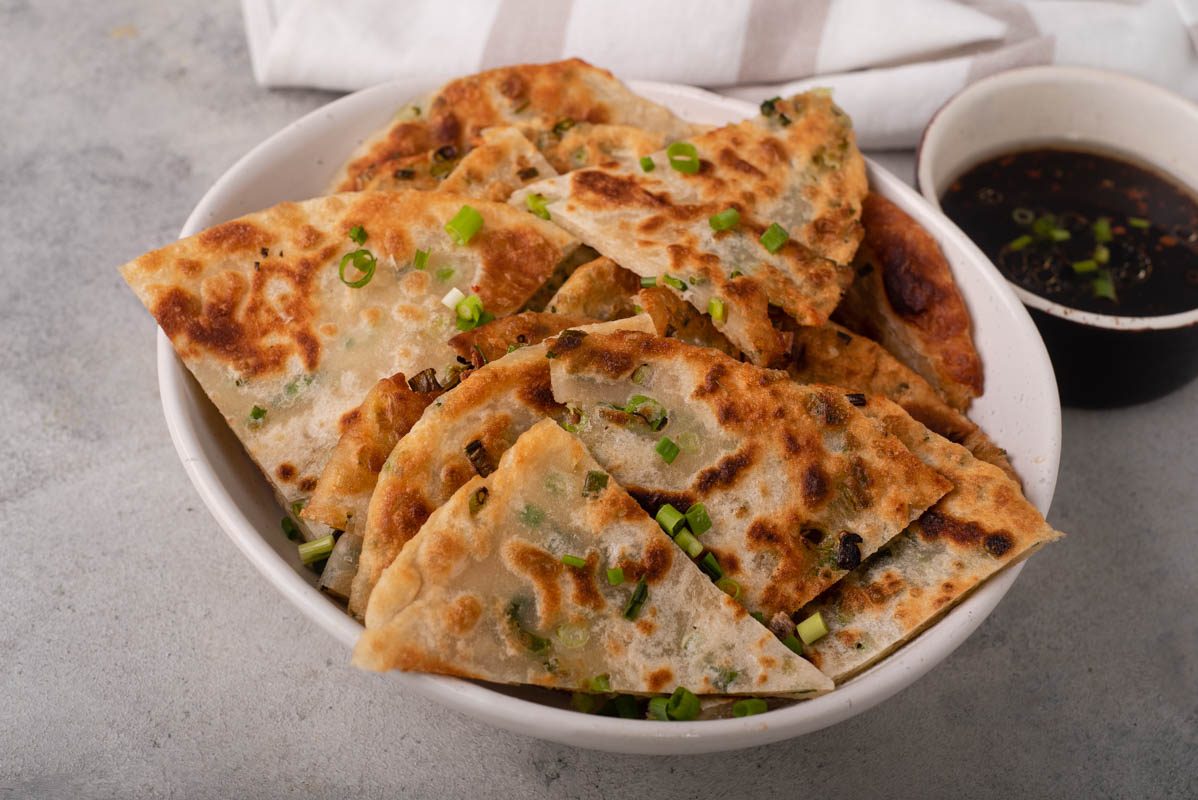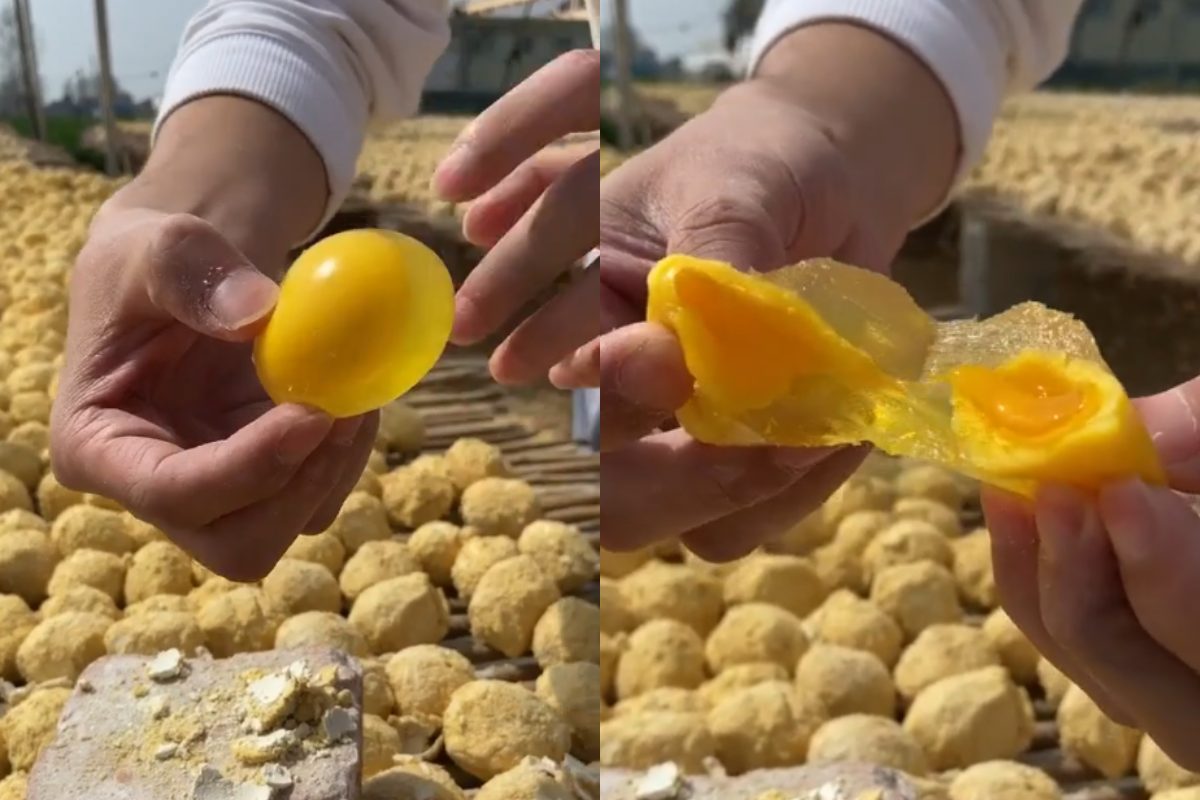Chinese Tea Eggs: the simple recipe for a classic Chinese street food snack
;Resize,width=742;)
Chinese tea eggs, aka marbled tea eggs are a mouthwatering snack or appetizer that are incredibly easy to make. Packed with flavor thanks to the wonderful marinade made from soy sauce, black tea, cinnamon, star anise, Sichuan peppercorns, sugar, and bay leaves, tea eggs are savory, salty, and beautifully spiced.
Cook these eggs twice. You can make soft-boiled or hard-boiled Chinese eggs, depending on how you like your eggs. Next, cook them in the marinade to let the flavors absorb. After boiling the eggs, they're lightly cracked and marinated, which gives the marble effect over the surface when you peel them.
Enjoy your Chinese tea eggs warm, cold, or at room temperature as a snack, or serve them with some rice, veggies, or noodles.
Chinese Tea Egg Origins
Various versions of marinated eggs can be found throughout Asia, however, the original recipe is believed to be Chinese. They come from Zhejiang, but tea eggs are found all over China and are a popular snack both in their native country and around the world.
How to Make Chinese Tea Eggs
Ready to make authentic Chinese tea eggs? Let's get started! Start by combining the light soy sauce, dark soy sauce, bay leaves, Sichuan peppercorns, star anise, cinnamon, sugar, salt, tea bags, and water in a pot. Those warming spices and black tea help give the tea eggs their earthy, spiced flavor. Let the mixture come to a boil, then simmer it for 10 minutes.
Take the saucepan off the heat, and let the marinade cool completely. Discard the tea bags. Boil water in a pot. Once boiled, lower the heat and carefully put the eggs in the water. Boil the eggs for 5 minutes for soft-boiled, 7 minutes for medium-boiled, or 10 minutes for hard-boiled. Pour some cold water into a large bowl and add plenty of ice.
Once the eggs have reached your desired level of doneness, put the eggs in the ice bath and leave them for a few minutes, so they stop cooking. Using the back of a spoon, lightly crack the eggs to break the shell. Make sure not to break the egg.
Put the eggs into a sealable bag. Pour in marinade, including the spices. Marinate the eggs for 24 hours, then peel and enjoy as a snack or part of a meal.

What to Do with Leftover Tea Egg Marinade
Any leftover marinade can be used to make more tea eggs, just be sure to simmer it and let it cool before using it again. It should last 2 to 3 weeks when stored in the fridge.
Tips for the Best Chinese Tea Eggs
Make your tea eggs gluten-free by using gluten-free soy sauce or coconut aminos instead of regular soy sauce.
You can substitute regular soy sauce for either light or dark soy sauce.
Use a ladle or spoon to lower the eggs into the hot water, so they don't crack.
If you don't have ice, you can run the eggs under cold tap water for a few minutes to stop them from cooking further.
If you don't have teabags, use two tablespoons of loose-leaf black tea.
You can peel the eggs if you prefer not to crack them. They'll take 12 hours to marinate.
Other Asian countries make their own versions of marinated eggs, including Japan, where they're known as ajitsuke tamago, or ramen eggs, and Korea, where they're called mayak eggs. The Indonesian version is called telur pindang.

How to Store Tea Eggs
Place your tea eggs into an airtight container in the fridge and enjoy within 5 to 7 days. You can reheat the eggs and enjoy them as a snack or add them to a meal.
Ingredients
Instructions
Combine the light soy sauce, dark soy sauce, bay leaves, Sichuan peppercorns, star anise, cinnamon, sugar, salt, tea bags, and water in a pot.
Bring to a boil, then reduce to a simmer and cook for 10 minutes. Take the saucepan off the heat, and leave it to cool completely. Discard the tea bags.
Bring water to a boil over high heat. Once boiled, reduce the heat to low. Carefully place the eggs in the water.
Pour ice and water into a large bowl. Set aside.
Boil the eggs for 5 minutes for soft-boiled, 7 minutes for medium-boiled, or 10 minutes for hard-boiled.
Place the eggs in the ice bath and leave for 2 to 3 minutes.
Using a spoon, lightly crack the eggs, so the shell breaks, but without breaking the egg. Place the eggs into a sealable bag.
Pour in marinade, including the spices. Marinate for 24 hours.
Peel and enjoy.
Notes
Use a quart-sized sealable plastic bag to marinate your eggs. You'll need less marinade this way. If you prefer to use a container, double the marinade.
;Resize,width=767;)
;Resize,width=712;)
;Resize,width=712;)
;Resize,width=712;)
